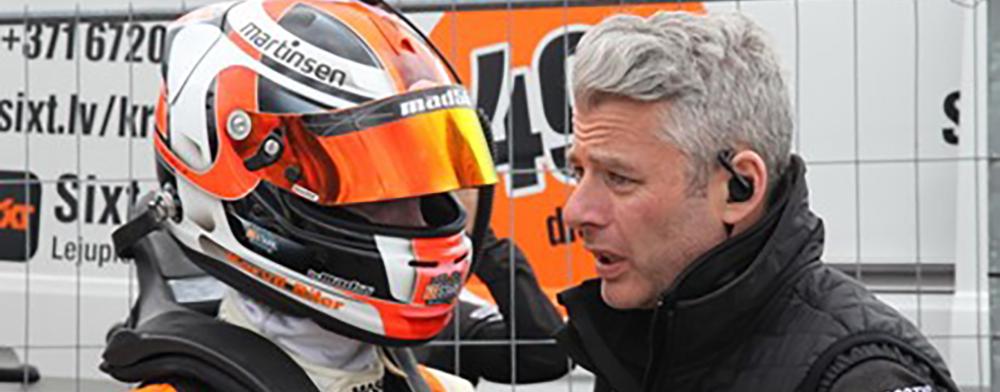Osteopathy offers people a flexible career and the opportunity to pursue their passions. We talk to Chris Williams, UCO Deputy Leader for Patient Care, about his career beyond the UCO including his work within professional motorsports.
Can you tell us a little bit about your route into osteopathy? What made you want to choose osteopathy as a profession?
My route into osteopathy was not a classic route. I left school having not achieved the grades I wanted for an architectural degree. Worried I wouldn’t obtain a degree I jumped at a place via clearing. It was a big mistake. After two years of study, I realised it wasn’t the right degree for me so returned to sixth form college to undertake Biology and Chemistry A levels in order to pursue osteopathy. My parents had always seen osteopaths and I was intrigued about their approach and how they treated people. This sparked a latent interest. I guess coming from engineering parents, looking at how things function was a natural instinct.
You studied at the UCO. What are you memories of studying here? What did you do following graduation?
I was lucky to study across the current site and the old site in Trafalgar Square. It was brilliant being in that part of London at the age I was. There was a really great vibe and the history in the building was amazing. The cohort I studied with were very supportive and I am fortunate enough to still be in contact and teach with some of them. I worked as an associate at a couple of practices and then took over a practice at the BBC Television Centre. I returned to the then BSO to teach technique. Following the birth of my daughter, I made a career change to recruitment where I ended up becoming a director and owner of a then successful recruitment firm in the south east. In 2011/12 I sold my position in the firm and then returned to the osteopathic profession, setting up a practice and returning to teaching. A decision I have never regretted since. I have recently taken a role as Deputy Unit Leader for Patient Care.
You do a lot of work within the professional sports arena - what was your route into this and what advice would you give others interested in doing the same?
I managed to find a route in via contacts within my patient base. Motorsport is a notoriously difficult sport to break in to and it is a question of networking and being resilient. Don’t give up at the first knock back if that is something of interest.
Can you tell us a little about the work you do within professional motorsport. What does your role involve?
My work within professional motorsport has taken me all over the globe. I have worked with many top teams within endurance motorsport including Aston Martin and Ford. Endurance motorsport races last from 3 hours to 24 hours, including the world famous Le Mans race, which I have been lucky enough to provide support for. The role is varied and very busy. It includes treatment of drivers and team staff, looking after their hydration, nutrition, physical and mental warm up as well as being a PA to the drivers to ensure they are where they need to be at the time they are supposed to be there. You get involved with kit management, comfort within the car, ensuring rest periods and general fitness. You will also get your hands dirty tidying the garage and cleaning up if necessary. It is a real 360 degree role. Common issues depend a lot on the ergonomics of the car, drivers can suffer with cervical spine issues or pelvic issues, depending on the manufacturer and their experience and fitness levels.
Presumably your work requires you to travel, and you also teach and see other patients in your own UK based clinic. What are the challenges and benefits of juggling multiple roles, and how do you make this work?
My roles are varied and that is the way I prefer to work. The constant change of work environment means that I have to be well organised and ensure that no area is being forgotten. A busy travel schedule, patient list and teaching roster means that things are planned well in advance to ensure if there is a change further down the road, it can be adjusted accordingly. Throw my children into the mix, means that I have to maximise as much as possible in order that no facet feels neglected. I wouldn’t have it any other way, not many people can say that can combine their work and their passion.

